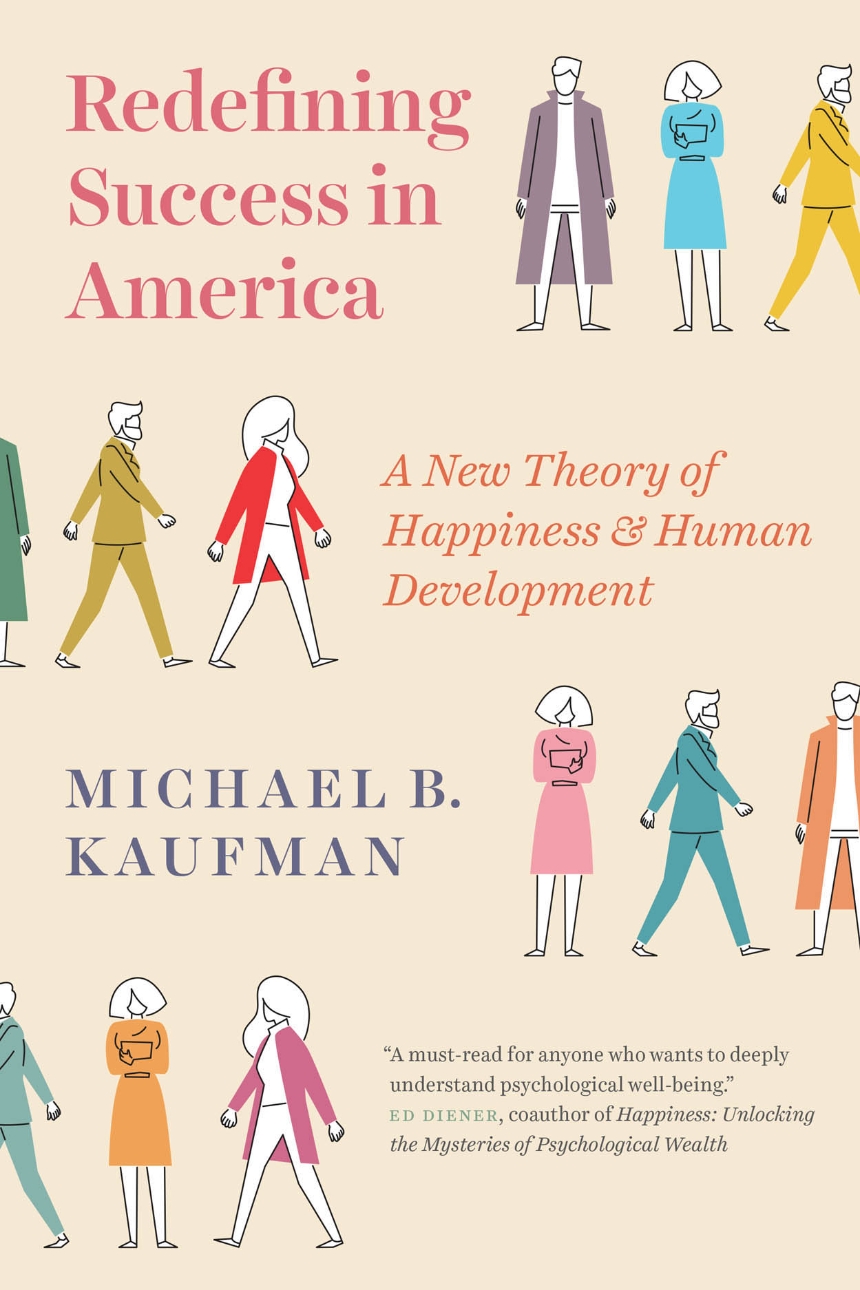Redefining Success in America
A New Theory of Happiness and Human Development
9780226550152
9780226550015
9780226550299
Redefining Success in America
A New Theory of Happiness and Human Development
Work hard in school, graduate from a top college, establish a high-paying professional career, enjoy the long-lasting reward of happiness. This is the American Dream—and yet basic questions at the heart of this competitive journey remain unanswered. Does competitive success, even rarified entry into the Ivy League and the top one percent of earners in America, deliver on its promise? Does realizing the American Dream deliver a good life? In Redefining Success in America, psychologist and human development scholar Michael Kaufman develops a fundamentally new understanding of how elite undergraduate educations and careers play out in lives, and of what shapes happiness among the prizewinners in America. In so doing, he exposes the myth at the heart of the American Dream.
Returning to the legendary Harvard Student Study of undergraduates from the 1960s and interviewing participants almost fifty years later, Kaufman shows that formative experiences in family, school, and community largely shape a future adult’s worldview and well-being by late adolescence, and that fundamental change in adulthood, when it occurs, is shaped by adult family experiences, not by ever-greater competitive success. Published research on general samples shows that these patterns, and the book’s findings generally, are broadly applicable to demographically varied populations in the United States.
Leveraging biography-length clinical interviews and quantitative evidence unmatched even by earlier landmark studies of human development, Redefining Success in America redefines the conversation about the nature and origins of happiness, and about how adults develop. This longitudinal study pioneers a new paradigm in happiness research, developmental science, and personality psychology that will appeal to scholars and students in the social sciences, psychotherapy professionals, and serious readers navigating the competitive journey.
Returning to the legendary Harvard Student Study of undergraduates from the 1960s and interviewing participants almost fifty years later, Kaufman shows that formative experiences in family, school, and community largely shape a future adult’s worldview and well-being by late adolescence, and that fundamental change in adulthood, when it occurs, is shaped by adult family experiences, not by ever-greater competitive success. Published research on general samples shows that these patterns, and the book’s findings generally, are broadly applicable to demographically varied populations in the United States.
Leveraging biography-length clinical interviews and quantitative evidence unmatched even by earlier landmark studies of human development, Redefining Success in America redefines the conversation about the nature and origins of happiness, and about how adults develop. This longitudinal study pioneers a new paradigm in happiness research, developmental science, and personality psychology that will appeal to scholars and students in the social sciences, psychotherapy professionals, and serious readers navigating the competitive journey.
See an online appendix for the book.
304 pages | 18 line drawings, 32 tables | 6 x 9 | © 2019
Education: Higher Education
Psychology: Developmental Psychology, Educational and School Psychology, Personality
Reviews
Table of Contents
Preface
1 The Study of Success and HappinessPart 1 Patterns in Lives
2 Brightness and Darkness
3 The Varieties of Experience
Part 2 Observations and Longitudinal Models
4 The Qualitative Assessment of Well-Being: An Innovation in Happiness Research
5 The Stability Model
6 Stability Tested Quantitatively
7 The Change Model
8 Beyond Success: The Relationship between Career and Happiness
Part 3 Comparison and Summary
9 A Conventional Measure of Happiness: A Reexamination
10 A Paradigm for Understanding Adult Life
11 The Forces Shaping Our Well-Being
Acknowledgments
Appendix 1: Primary Psychobiographical Sketches
Appendix 2: Sample Selection and Participation
Appendix 3: Roster of Interviews
Appendix 4: Study’s Methods of Analysis
Appendix 5: Variables and Measures
Appendix 6: Aspects of Remembered Early Life Appearing in Interviews
Appendix 7: The Creation of Remembered Early Life Affect Scale
Notes
References
Index
